Islamophobia
Islamophobia Is Spreading Faster Than the Virus
Published
5 years agoon
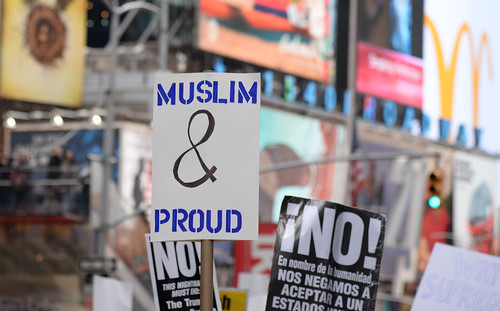

Google defines phobia as “an extreme or irrational fear of or aversion to something.” But what can we say about IslamoPHOBIA? Google defines it as a “dislike of or prejudices against Islam or Muslims, especially as a political force.”
But what do they hate Islam for? It does nothing except guide people to live better while mending the world to become a better place. However, not everyone is capable of understanding good things. Or some people can be easily brainwashed to believe something which is not valid. Islam is peaceful, but it is pretty easy to fabricate things and promote Islamophobia. This is precisely what is happening nowadays around the world.
Not Only Europeans but Also Asians Are Islamophobic
Most Europeans are Islamophobic even though they have no idea what Islam is all about. Nowadays, the phobia has traveled to Asian countries, too. To be specific, India is playing its best to wipe off Indian Muslims from the country. But if we just take a look at Indian history, we can clearly see how many Muslim leaders and professionals have worked hard to make India better.
Not only India but also Sri Lanka deals with Islamophobia behind closed doors. Even though Sri Lankan Islamophobic acts have not caught the eyes of the public, it happens. Sri Lankan Muslims suffer even though it’s a little less than Indians. But how can we rate suffering? Is it a competition or something? Here’s a recent Islamophobic act that happened in Sri Lanka, which will leave you breathless.
This is just a glimpse of what Sri Lankan Muslims face, but there are myriad untold stories. Living with the fear of harassment and bullying isn’t easy, but Muslims get the courage to overcome all these because of their faith. When we believe in Allah, everything else becomes easy.
Why Muslims Receive so Much Hatred
New Zealand’s Christchurch attack was dreadful. People were struggling to overcome the trauma for days, weeks, and months. The attack was pulled on Muslims just because they followed Islam. But the attack didn’t limit to Christchurch; rather, it kept happening over and over in different countries. Some news hit the public eye, whereas some news vanished into thin air.
Even though the Christchurch attack was recent, hatred towards Muslims aggravated since the 9/11 incident. Muslims were scapegoated for the incident that happened years back, and they are still struggling.
Most Muslim immigrants fear every single day of their lives. Even though they have migrated to lead a better life, their religious beliefs have become threats. Yet, Muslims don’t give up on their religion just because they face racism. They understand every struggle accompanies a blessing, so they wait patiently.
For example, protests concerning the Delhi riot in India weren’t disturbing because the protests were peaceful. But the Police took stern actions against the protestors and the Muslims in Delhi. It looks like India is getting ready for another significant genocide.
However, hatred towards Muslims comes from high profiles, so easing it requires a lot of courage and strength. But not a leaf falls without Allah’s knowledge, so if Muslims are struggling, it means that good times are ahead. Allah knows what we know not. Donald Trump can ban Muslims from entering the country, and Boris Johnson can insult Muslim women, but nothing can cause a threat to the religion of peace because we believe in Allah.
When we are finding the reason for the hatred Muslims receive, we are left with no solid reason. Some hate Muslims because they think immigrant Muslims will invade their country. Some others assume that Islam will be forcefully imposed on them. Meanwhile, some don’t know about Islam or have Muslim connections, yet they hate Muslims. Likewise, there are so many absurd reasons to hate Muslims.
But Muslims should remember one thing: whatever you are facing, and wherever you are now, Allah has planned it all.
How Can Muslims Combat Islamophobia
Combating Islamophobia can be depressing. Plus, combating it with kindness might annoy you, but certain things need to be dealt with in a certain way.
“Good and evil cannot be equal. Repel evil with what is better, and your enemy will become as close as an intimate friend.” (Quran, 41:34)
As the Quran mentions, we, Muslims, shouldn’t deal with hatred. Islam doesn’t promote anger or violence. Instead, it teaches us to be patient and kind. For example, Prophet Muhammad (PBUH) was sympathetic to the lady who threw garbage at him even though he could have reacted worse. Prophet opted to be kind than angry, so as the followers of Islam, we need to follow in his footsteps.
Of course, there have been wars in Islam for reasonable reasons. But these are not medieval times to wage wars. So we, Muslims who can think reasonably, can come up with better ways to combat Islamophobia.
If someone is outpouring hatred, you can choose to react with love. For example, if someone on social media is targeting you because you are a Muslim, you can quote Islamic ways of handling hatred.
One of the best examples of how Muslims shouldn’t react to Islamophobia is how netizens reacted to Mila Orriols. The 16-year-old schoolgirl from France got into an argument with a man online, and when the argument got severe, she commented, “the Quran is a religion of hatred.” Her comment itself weighs her knowledge about Islam. However, the comment went viral, and she started receiving hate messages that ultimately required police intervention.
We are trying to say that if some Muslims had reacted differently, as we mentioned, maybe there would have been some difference. Or Mila herself would have taken some time to learn what Islam is all about.
You are the best tool to show what Islam is. You have to act and behave as Islam suggests so that people around you get inspired and understand Islam. Most Islamophobic people wouldn’t have Muslim neighbors or friends, yet they would hate Islam. They might follow the herd so that they belong somewhere. Let us make it clear; you don’t have to follow the herd if they are walking in the wrong direction. The wrong doesn’t become right just because a group of people does it.
“O Aisha, Allah is gentle, and He loves gentleness, and He rewards for gentleness what is not granted for harshness, and He does not reward anything else like it.” (Source: Sahih Muslim 2593)
For more Check
You may like
-

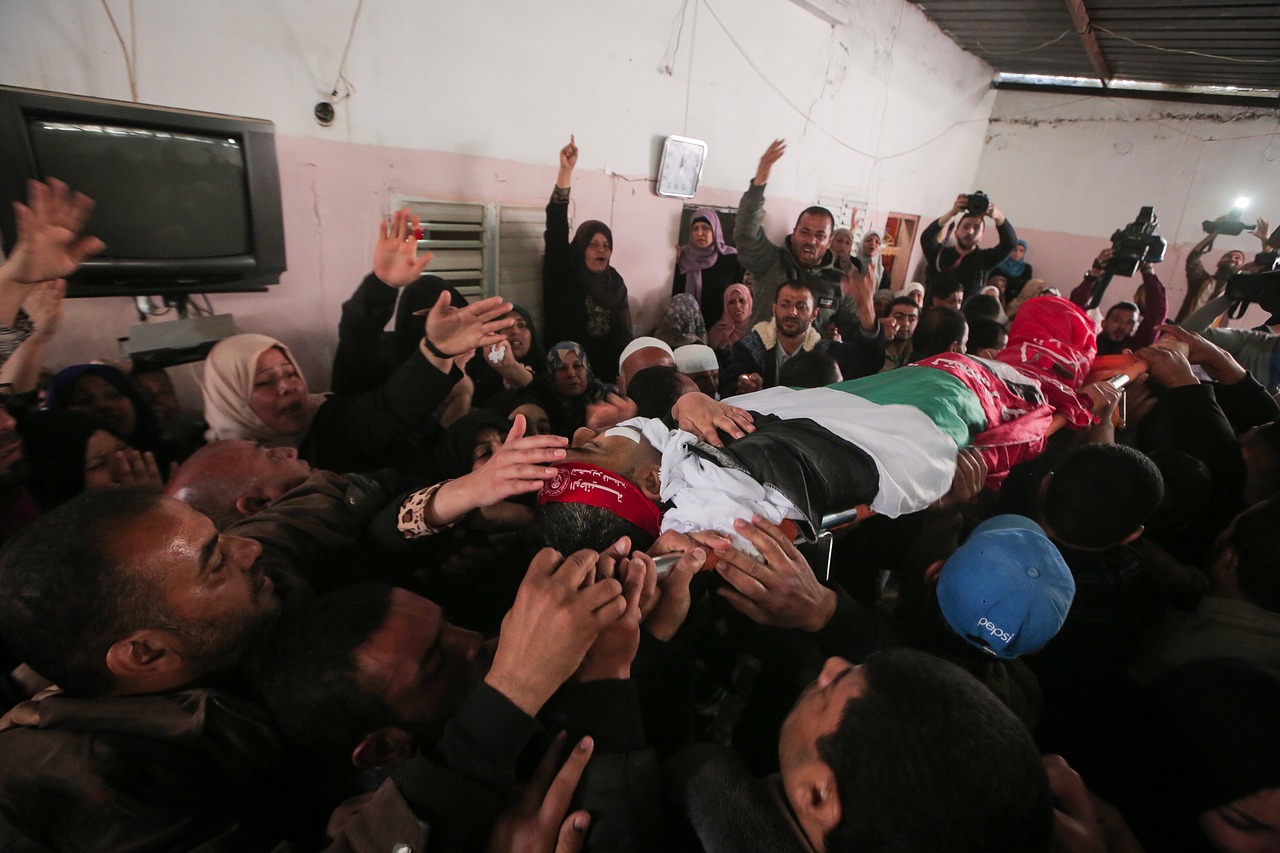


The War No One Sees: What Will it Take to End Gaza’s Humanitarian Crisis
-

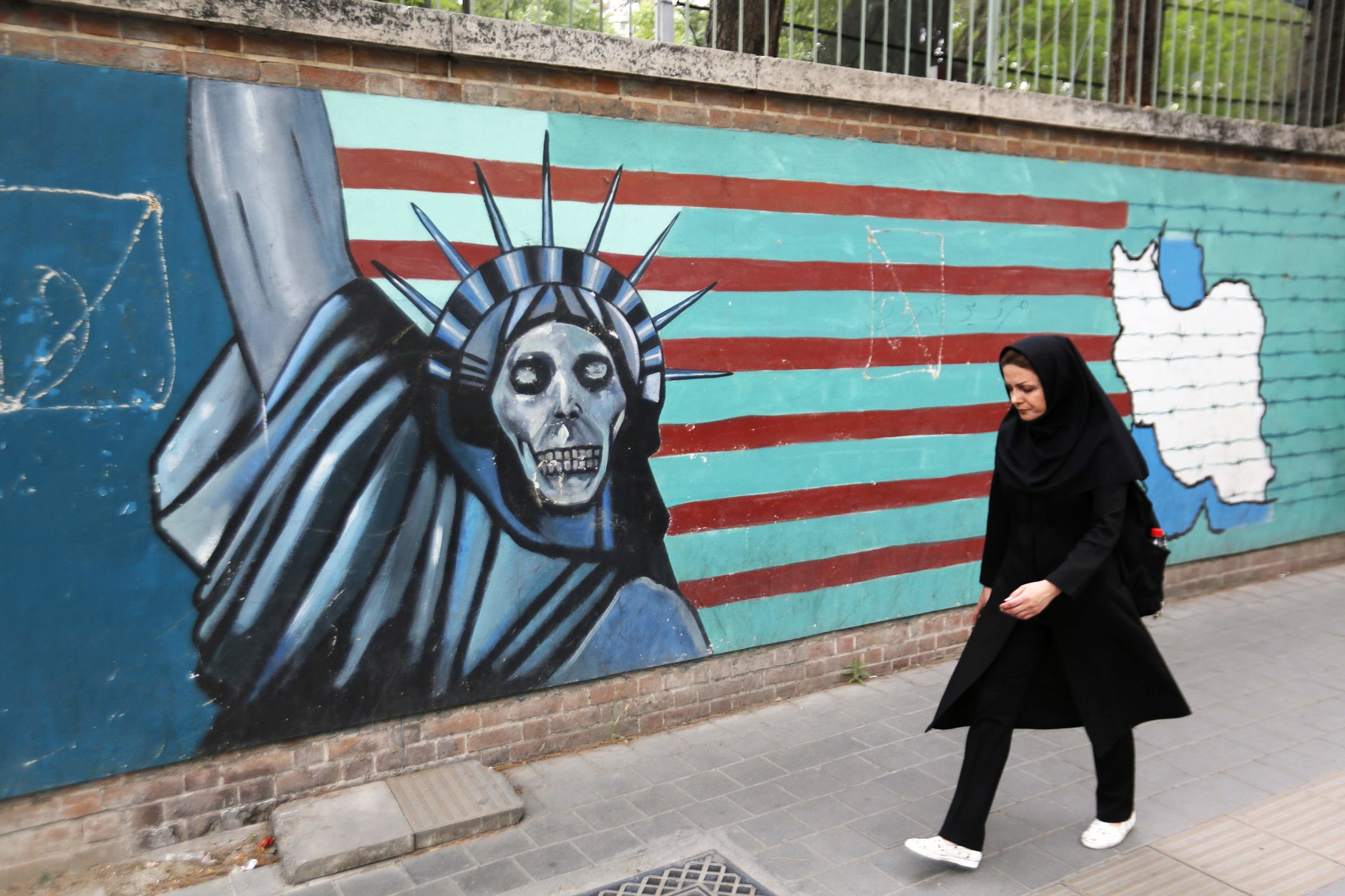


Muslims have more reasons to hate the US than the other way around
-






Muhammed: The Greatest Man to walk on Earth
-

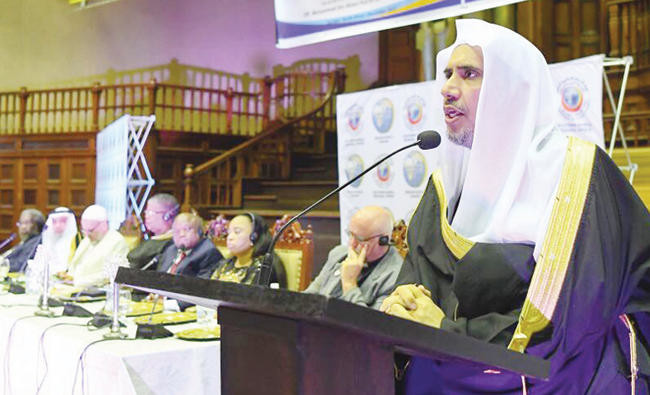


Muslim World League Chief’s Visit to India
-

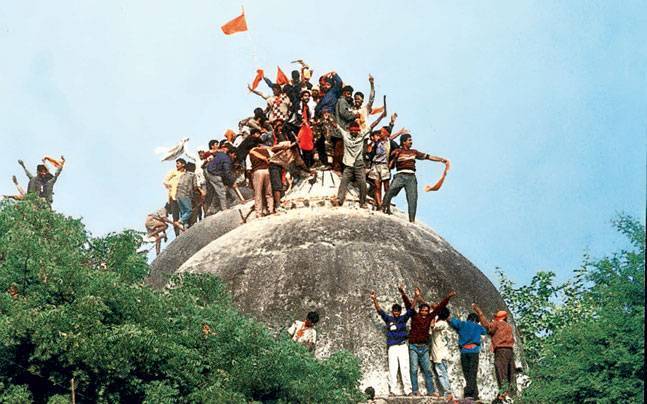


The Appalling State of Muslims in post-colonial India
-




“The Kerela Story” Controversy in India
Featured
Muslim World League Chief’s Visit to India
Published
1 year agoon
July 20, 2023By
Naira Mir

The recent visit of Sheikh Mohammed Bin Abdulkarim Al-Issa, Chief of the Muslim World League, to India holds significant importance in fostering interfaith dialogue, promoting peace, and countering extremism. Al-Issa’s condemnation of terrorist organizations, emphasis on the disassociation between Islam and extremism, and calls for unity and love amidst conflicts resonate with diverse communities. His visit to prominent religious sites, including the Akshardham temple and the Jama Masjid, further reinforces the significance of mutual respect, understanding, and cooperation among different faiths in the pursuit of global harmony.
Also, read Umar Khalid Completes 1000 Days in Jail Without Trail
Muslim World League’s Efforts for Peace and Countering Extremism
The Muslim World League, under Al-Issa’s leadership, has been actively engaged in countering extremist ideologies and promoting peace globally. Al-Issa’s visit to India provides an opportunity to reinforce their commitment to fostering dialogue, understanding, and cooperation among political and religious leaders, addressing critical issues related to countering extremism and promoting harmony within societies.
Read here, G20 Summit in J&K: China, Turkey, Egypt, Saudi Arabia opted out
Emphasizing Islam’s Rejection of Extremism
During his visit, Sheikh Mohammed Bin Abdulkarim Al-Issa made significant remarks emphasizing Islam’s rejection of extremism and its commitment to peace and harmony. He highlighted that extremist organizations do not represent Islam or any other religion, emphasizing their disconnection from religious teachings.
“Islam does not like double-speak and Muslims need to be truthful,” the Muslim World League secretary general said in his sermon delivered in Arabic.
Al-Issa emphasized the need to counter the distortion of the Islamic faith by terrorist organizations, emphasizing that Islam stands for peace, love, and harmony. He reiterated that the teachings of Islam promote compassion, tolerance, and respect for all humanity.
By underscoring the message that Islam has no place for extremism, Al-Issa aims to dispel misconceptions and bridge gaps between different religious communities. His statements seek to foster understanding, promote interfaith dialogue, and combat the spread of extremist ideologies that falsely claim religious justifications for violence.
Through his leadership in the Muslim World League, Al-Issa and the organization actively work to counter extremist ideologies and promote a peaceful interpretation of Islam. Their efforts include educational programs, interfaith initiatives, and ideological interventions aimed at fostering a culture of tolerance, coexistence, and peace.
Al-Issa’s emphasis on Islam’s rejection of extremism not only reaffirms the commitment of the Muslim World League but also serves as a powerful message to Muslims around the world. It reinforces the importance of understanding and living by the true principles of Islam while rejecting any form of violence or extremism.
In conclusion, Sheikh Mohammed Bin Abdulkarim Al-Issa’s emphasis on Islam’s rejection of extremism highlights the core values of peace, love, and harmony within the religion. His efforts to counter the distortion of Islamic teachings by extremist groups contribute to fostering interfaith dialogue, promoting understanding, and working towards a more peaceful and inclusive world.
Also, read The Appalling State of Muslims in post-colonial India
Interfaith Engagement at Akshardham Temple and Jama Masjid
Al-Issa’s visit to the Akshardham temple and Jama Masjid exemplifies his commitment to interfaith dialogue and fostering understanding among diverse religious communities.
At the Akshardham temple, Al-Issa not only admired the architecture and cultural heritage but also engaged with the Swamis to discuss matters related to global peace, harmony, and coexistence. This interaction provided a unique opportunity for an exchange of perspectives, fostering deeper understanding and mutual respect among different faith traditions.
Similarly, Al-Issa’s presence at the historic Jama Masjid during Friday prayers was a significant gesture of solidarity and outreach to the Muslim community in India. His participation in the prayers underscored the importance of unity and shared values across religious boundaries, reinforcing the need for peaceful coexistence and interfaith cooperation. Ahead of the prayer, Al-Issa met Ahmed Bukhari, Shahi Imam of Delhi’s Jama Masjid.
These interfaith engagements highlight the significance of dialogue, respect, and mutual learning in promoting peaceful relations among diverse religious communities. By engaging with leaders and communities of different faiths, Al-Issa aims to bridge gaps, dispel misconceptions, and foster harmonious relationships based on shared values of love, peace, and understanding.
These initiatives contribute to building trust and strengthening bonds among people from various religious backgrounds, paving the way for a more inclusive and tolerant society. They demonstrate the Muslim World League’s commitment to interfaith dialogue, promoting harmony, and working towards a peaceful coexistence where diverse religious communities can thrive together.
Read here, “The Kerela Story” Controversy in India
Efforts to Counter Extremism and Promote Peace
Sheikh Mohammed Bin Abdulkarim Al-Issa reiterated the Muslim World League’s dedication to countering extremism and promoting peace globally. Their initiatives focus on ideological interventions, countering hate narratives, and fostering dialogue to eliminate extremist ideas and foster a climate of harmony and understanding. Al-Issa’s visit to India serves as a platform to strengthen collaborations in countering extremism, promoting interfaith harmony, and advancing peacebuilding efforts.
Sheikh Mohammed Bin Abdulkarim Al-Issa’s visit to India as Chief of the Muslim World League carries significant implications for fostering interfaith dialogue, promoting peace, and countering extremism. His emphasis on Islam’s rejection of extremism, engagement with diverse religious sites, and commitment to countering extremist ideologies reflect the efforts of the Muslim World League in combating the distortion of religious teachings. Through dialogue, understanding, and concerted actions, Al-Issa and the Muslim World League strive to build bridges among different faiths and promote a climate of peace, love, and harmony in India and beyond.
However, Abdulkarim Al-Issa chose not to speak of the atrocities happening in India against the Muslim population nor did he speak of the Kashmir issue, and what people are calling a bloody silence disappointed many Muslims.
Also, read India Ranks 161st in Terms of Journalistic Freedom- RSF
Featured
The Appalling State of Muslims in post-colonial India
Published
2 years agoon
June 11, 2023By
Naira Mir

South Asia is home to one-third of the world’s Muslim population. Contrary to the popular belief there are more Muslims in South Asia than there are in middle-east which is popularly known to be the heart-land of Islam. After Indonesia, India is the second country in the world with the largest Muslim population. India is anciently known to be the hub of Hinduism, Buddhism and Jainism. So, when and how did a country largely consisting of Hindus, Buddhists and Jains become so densely populated by Muslims? How did Islam emerge in pre-colonial India? As much as there is a controversy around this inquisition, there is also a lack of historical, geographical and political awareness related to it. The most important aspect to this bone of contention is the appalling state of the Muslims in post-colonial India, and how is it different from that of the Muslim diasporas in the rest of the world, in specie the West. Albeit there have been events of religious violence in pre-colonial and British India, the post-colonial period has seen an enormous increase in riots and hate crimes against Muslims in India.
Also read, India Ranks 161st in Terms of Journalistic Freedom- RSF
The Image of Muslims in the West
The image of Muslims in the west has been in question lately more than ever in the world in general. The rise of hate crimes against Muslims usually chalk up to the 9/11 attack against the United States which was allegedly carried out by a religious extremist organization Al-Qa’ida. Having said that there have been some crucial conspiracy theories that called for a new investigation into the attacks, because they asserted that there was evidence of individuals from within the US government being either responsible for or knowingly having conspired in the attacks as a means for America of justifying the war in Afghanistan and Iraq. However, majority of the general public held the opinion that Al-Qai’da had orchestrated the attack. Because the members of the Al-Qai’da were people who proclaimed to be the adherents of the religion of Islam, this gave rise to a sense of bigotry and intolerance in the west towards the entire Muslim community.
The widely accepted notion among the broad commonality incriminated the Muslims of effectuating the attack. Non-Muslims started generalizing Muslims and started viewing them as people who endorsed terrorism, which led to a common prejudice against them in the western society. From their customs and religious practices, including their eating habits, to their appearance and clothing, Muslim men and Women were looked down upon and stereotyped as radical and fundamentalists. This generalization and stereotyping of Muslims gradually turned violent in nature and this turn of events gave rise to a series of hate crimes resulting in abuse and even unfortunate deaths of many Muslims. Howbeit, even before the 9/11 attack, many bookmen and laypeople alike had accepted a prior perception that religious terrorism had become the most common form of terrorism, particularly with regard to Islam. This suggests that Islamophobia was a common practice even before 2001.
Read here, “The Kerela Story” Controversy in India
Islamophobia before 9/11
People have associated Islamophobia with various manifestations. While some people reckon the phenomena with the increasing population of Muslims in the United States and Europe, others deem it to be retaliation for an ostensible anticipation of the emergence of a global Muslim identity. Yet many others identify Islamophobia with xenophobia and racism. Another less talked about reason for Islamophobia is the media’s double standards while reporting terrorism. A recent study has found out that terror attacks by “muslims” receive 357% more press attention. This was University of Alabama researcher’s newly study which was published in Justice Quarterly (academic journal covering criminology and criminal justice) authored by Dr. Erin Kearns, UA assistant professor of criminology and criminal justice. Still and all the causes of Islamophobia have always been and till date are debatable.
In the spate of attacks on Muslims in the western countries including the United States, United Kingdom, Canada, Switzerland and New Zealand, it should be noted that the occurrence of such deplorable crimes in the West have one regularity. They are all driven by Islamophobia, the impetus of which is the bigotry for Muslims, a sequence to the specious notion that Muslims endorse Terrorism.
Also, read Muslim OBC Reservation scrapped by BJP government of Karnataka
Appalling State of Muslims in post-colonial India- Partition
Talking about Islam and Muslims, then like in West the appalling state of Muslims is much the same in parts of South Asia explicitly in India, but for wholly different reasons. Though there have been incidents of religious violence in pre-colonial and British India, the history of modern India has seen a compelling surge in the estimate of both subjective and objective violence. But what accounts for this rise of violence against Muslims in independent India? Is it Islamophobia that drives this hatred, just like it does in the West.
Inasmuch these crimes are a result of anti-Muslim sentiments in both the West and in India, the causes of these crimes are primitively much different. Benchmarking the nature of these crimes and the disparity in the claims of the perpetrators, one finds out that there is significantly a historical aspect to the nature of violence against Muslims in India. The partition of British India into two different countries, now called India and Pakistan, was originally borne out of a religious divide amongst Hindus and Muslims. As history claims, different people were for and against partition, as each had a different vision in mind.
There are many theories that explain the reasons for the establishment of Pakistan. One of the most agreed upon consensus of the pro-partition leaders for the formation of Pakistan was the subject of safety of the Muslim minority in the otherwise Hindu majority India. The earlier incidents of religious violence in India had taken a toll on both the Hindus and Muslims. The Muslims being the minority were now more insecure about their safety while living amongst Hindus. Because the safety of Muslims had been in question, ultimately the demand for a separate country for Muslims by the pro-partition leaders was unanimously supported by most Muslims. The Muslims who were not able to migrate then to the land given to Pakistan were left in India, and thus were even less in number, making them an even smaller minority than before.
Read here, India- The Killing of Gangster-Turned-Politician Atiq Ahmad
Commencement of the Appalling State of Muslims in post-colonial India
What marked the commencement of the violence against Muslims in Independent India was the demolition of Babri Masjid, a 430 year old mosque in Ayodhya by extremist Hindus and members of Vishwa Hindu Parishad(VHP) and Bajrang Dal. What followed was a sequel of incidents feuled by the religious animosity stirred between Hindus and Muslims. There has been a continuing rise in the manifestation of hate crimes and incidents of religious prejudice against Muslims in India ever since. However, with the emergence of the current government in India, the last few years have seen an enormous and noticeable amount of hate driven crimes including rape, public flogging and lynching. The motives of the perpetrators for committing such heinous crimes are as bizarre as they are abominable. Concepts like cow vigilantism and theories like “Ghar Wapsi” have been doing rounds in the air and have accounted for most of these crimes if not all.
Also, read UN Defender Demands End to Crackdown on Kashmiri Activists
The idea of “Ghar Wapsi” in the appalling state of Muslims in post-colonial India
The idea of “Ghar Wapsi” has also been endorsed and publicized by the right-wing extremists in India, including the leaders of the current government. It is a concept that propagates religious conservation of non-hindus to Hinduism. The reason behind the ideology of these people is their belief that all the people living in pre-colonial and ancient India were originally Hindus. They believe that the emergence and presence of non-hindus in India is only because of the forced conversions by missionaries and invaders that came to India from outside, who were by and large Muslims. This ideology is linked to the pre-colonial past of India. It refers to the period when Islam first emerged in India in 711, when Mohammad Bin Qasim, who was a general in the Umayyad -empire conquered the area of the Southern Pakistan. This was the initial interaction of Islam with South Asia.
Afterwards in the 13th century, the Mongol Invasion uprooted a large number of Persian Turks from Iran and Central-Asia driving them to India where they settled in. And so gradually the tradition and practices of these people started to blend in the syncretic culture of India. Subsequently in the late 13th century with the establishment of the Empire of Timur, began the era of the rise Muslim rulers in India.
Later on in 1526, Babur, a direct descendant of Timur, founded the Mughal Empire, which then ruled almost all of the Indian subcontinent for more than 200 years. During the growth of the Mughal Empire under Babar’s son Akbar (1526-1605) there was an essential blending of Hindu-Muslim cultures. Akbar married a Hindu princess of a pure Hindu Rajput blood-line. This made Akbar’s son Jehangir half Rajput and half-Hindu. After Akbar, his son also married a Hindu woman, and therefore Jehangir’s son Shahjahan was three-quarters Rajput. With the rise of the Mughal Empire, biologically each successor of the dynasty became less and less Turkic and more and more Indian. They adapted the culture of India and also the Indian culture was insinuated by the Islamic traditions, resulting in the concoction of two separate cultures and religions.
Read here, Festival turns bloody after Hindutva Mob Burnt Centennial Mosque
Historic Bias as a reason for the Appalling State of Muslims in Post-Colonial India
These religious and cultural adaptations are, however, still seen as unethical and blameworthy by many Hindus in India, as they see Islam as a threat to their own culture and identity, as a foreign concept brought to India from outside. They consider the presence of Muslims in India as a result of the historic invasions and forceful conversions by Muslim outlanders and conquerors, and not the gradual amalgamation of two different cultures and religions over the course of time. Crimes like lunching and theories like “ghar wapsi” are not mere co-incidents but are borne out of such historic beliefs. They are a corollary of a historic hurt that these people carry. The violence in the west or bread out of islamophobia is sporadic in nature and often spontaneous while in India violence is structured. Unlike the west, the primeval and ever-growing intolerance towards the practices and culture of Muslims in modern day India is not because of the nature of these practices. On the contrary, in India Islam as a religion is not seen as much of a threat but Muslims are.
Also, read Dehumanizing Representation of Tribals and Muslims in the Oscar fame RRR
India
The Kerala Story: Molding Truth to Fit the Love-Jihad Lie
Published
2 years agoon
June 6, 2023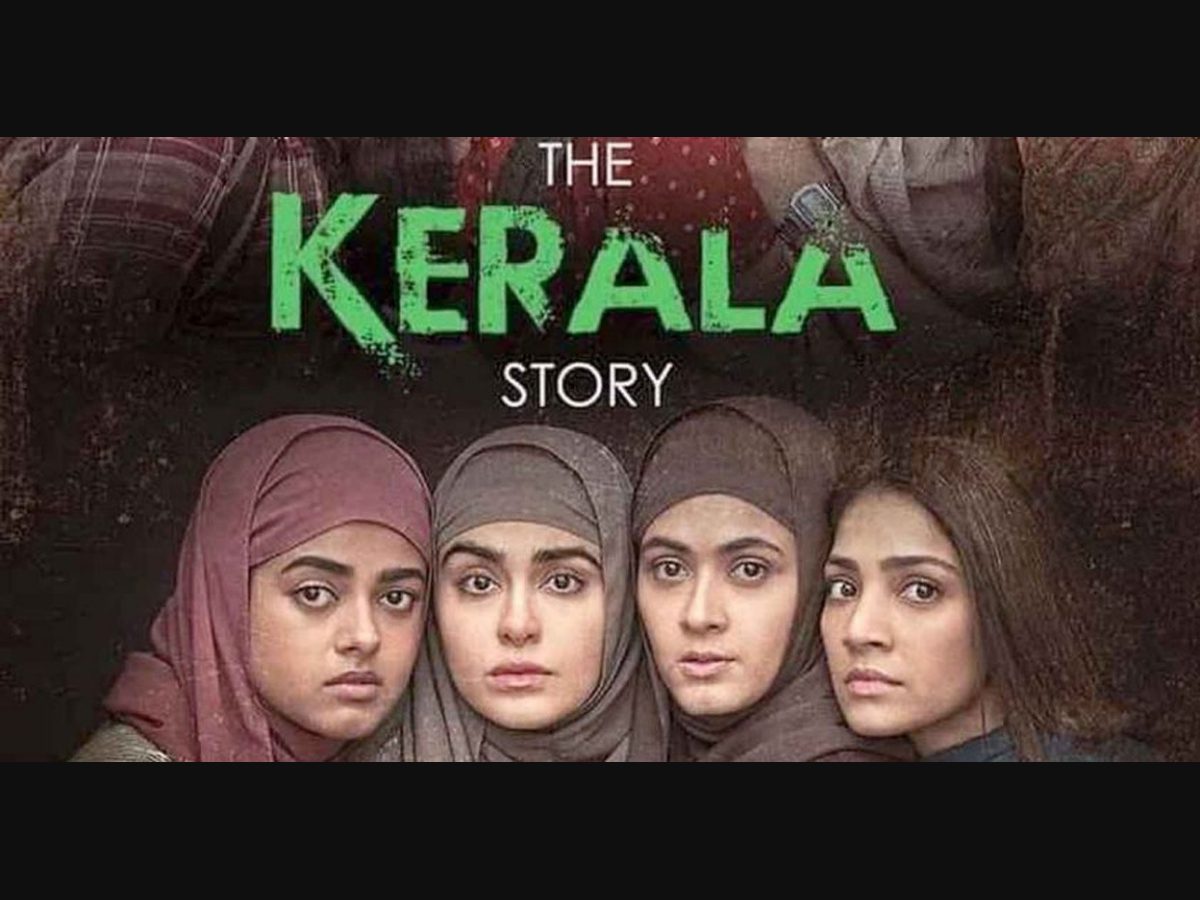

32,000 Hindu and Christan girls converted to Islam and transformed into ISIS terrorists – this is the plot line of a recently released movie, The Kerala Story. Focusing on the suffering of thousands of converted terrorists in Keralla, love jihad, and forced conversion, the film paints a grim picture of modern India.
But there’s a twist – the majority of what the movie presents as concrete facts are plain lies.
Be it the number of 32,000 converted ISIS terrorists or the looming threat of love jihad, the polarizing movie presents a twisted truth. In this article, we are debunking the reality of THE KERALA STORY and understanding how the movie only aims to provoke Indians against each other.
Fact-Check of the Kerala Story
The movie Kerala Story states multiple accusations and ‘facts.’ The most popular ones include the following:
- 3200 women converted to Islam
- Kerala to become an Islamic State in the next 20 years
- Fatima (the forcefully converted ISIS terrorist) is still stuck in an Afghanistan jail
But how much of it is true? Let’s uncover the reality.
3200 Converted women
In 2012, Oommen Chandy, the then-chief minister of Kerala, informed the state legislature that over 2667 young women converted to Islam between 2006 to 2012. On the contrary, however, the CM never mentioned the term ‘forced conversion.’
Instead, dismissing the baseless love-jihad accusation, he stated:
“We will not allow forcible conversions. Nor will we allow for spreading hate campaign against Muslims in the name of love jihad”
Oommen Chandy, cm of kerala
Kerala – An Islamic State?
The second claim was based on another former Chief Minister of Kerala, V S Achuthanandan’s (2006-2011) statement. However, when you look at the video, you can clearly see how they manipulated the English subtitles.
During his speech, Mr. Achuthanandan criticized PFI, blaming them for “influencing the youth of other religions.” However, again there was no mention of ISIS. Also, it’s worth noting that it’s been over 13 years since the speech, and Kerala remains a safe and secular state.
4 Kerala Women Who Joined Islamic State
Between 2016 and 2018, four women left Kerala for the Islamic State of Khorasan Province –Nimisha (Fatima Isa), Merrin Jacob (Mariyam), Sonia Sebastian (Ayisha), and Rafela.
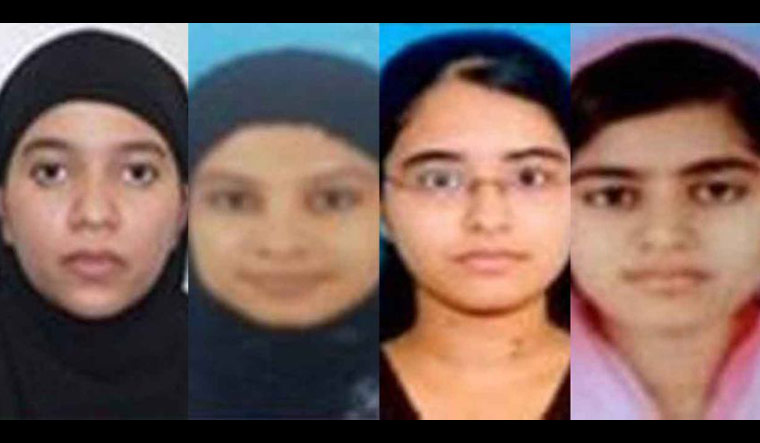

Amongst these four women, one was already Muslim, two converted from Christianity to Isma, and one from Hinduism to Islam. The Kerala story revolves around Fatima, who was allegedly trapped in love jihad. However, on further investigation, we found that Fatima’s husband, Eeza, himself converted to Islam from Christianity.
The Twisted Reality
The Kerala Story movie depicted a fake image of its three protagonists – innocent women trapped in a global conspiracy with no alter intentions. The entire audience sympathized with the helpless women.
However, when you look at the real-life interview of the real converted terrorist women, you can hardly empathize with them. The discussion clearly shows how brainwashed and radicalized these women still are.
Moreover, the 2016 NIA report shows that all the 20 terrorists mentioned in the report were deeply interconnected regarding radicalization. Seventeen of these came from the Kasargod district of Kerala.
The 2016 India Today report highlighted a concerning truth that it’s not just singles who are traveling to IS-controlled territories. Instead, entire families with children have gone to join ISIS.
According to Stat News Global, about 60 Indians (26 males, 13 women, and 21 children) shifted to Afghanistan in 2018.
So there definitely is a problem where people are brainwashed to join ISIS. Internet and social media have opened new modes of communication to influence. A 2019 report states that ISIS uses the dark web and encrypted platforms to radicalize the youth and recruit terrorists.
Analyzing the Real Terrorism Problem in India
The International Center for the Study of Radicalization, King’s College reported that about 41,490 people from 80 countries are affiliated with IS. Furthermore, 74% of these terrorists are men.
The Underseceratery General of the United Nations Office of Counter Terrorism released another data of over 40,000 foreign terrorist fighter joining conflicts in Syria and Iraq across 110 countries.
But how many of these recruits are from India?
America’s Bureau of Counter Terrorism published a country report which highlighted the 160 people who were arrested related to IS in India. These 160 people include not only the terrorists who left India to join ISIS but also individuals who propagated ISIS’s agenda over the Internet.
Of the 160 accused, only 40 cases were said to be from Kerala. This number, however, still does not tell the exact data of people who joined ISIS.
The US Department of State reports revealed that about 66 Indian-origin terrorists were affiliated with ISIS till November 2020. Among these 66, there are only ten women, and only six are from Kerala.
The Problem with the Kerala Story
Dictating the story of three women being the reality of 32,000 women is one of the biggest lies the Kerala Story presents.
The problem is – people are still being brainwashed and recruited into ISIS across the globe. Going back to the 2016 country report, we can see how many countries are affected by the problem. Following is the number of IS recruits per country:
- Russia – 2,500
- Frace – 1,700
- United Kingdom – 760
- Germany – 760
- Belgium -470
When these numbers are compared to India, a country with the third-largest Muslim population, the 66 recruits seem, though still concerning, small.
The movie is defaming one of the best states of India based on lies.
The Proud Truth, the Kerala Story, Tries to Hide
The ORA report and, in many instances, international organizations consistently ask why Indians have fewer ISIS recruits. The movie, however, does not delve into this.
Time and again, the Indian agency’s strict and quick repose has busted ISIS propaganda in the Country. For example, under Operation Pigeon, Indian agencies saved 350 vulnerable Malyali youths from being recruited through de-radicalization programs.
Former diplomat Talmiz Ahmad also praises India’s syncretic culture and tradition behind the youths rejecting extremism. Indian constitution and culture celebrate unity in diversity. That’s why most Indians reject extreme ideologies.
A report from 2015 even states that ISIS considers Indian recruits inferior to Arabs because Indian Muslims follow a more legal version of Islam.
Many Indian Muslim clerics have also played a positive role in promoting harmony. In March 2009, Darul Uloom Deoband issued a fatwa declaring India as Dar al-Aman (a country where militant jihad is prohibited). In 2015, over 70,000 Indian Muslim scholars issued a joint fatwa against ISIS, the Taliban, al-Qaeda, and other terrorist groups.
The Real Kerala Story
Kerala is a living example of India’s thriving unity in diversity, where people of all religious faith live together in harmony. Movies like The Kerala Story are trying to defame one of the most prosperous states of India, along with increasing polarity and radicalization within the country.
Terrorist propaganda, conversions, and brainwashing of youth to become terrorists are global realities. But films like the Kerala Story undermine the pain and suffering of the actual victim by showcasing fake provocating stories.
On the plus side, however, the lash back the movie has received shows that fake numbers and conspiracy theories can’t fool Indians.
Trending
-



 Featured1 year ago
Featured1 year agoWorld passively watching as Israel perpetrates open-ended massacre in Gaza
-



 Featured2 years ago
Featured2 years agoArgentina wins the World Cup; are there any other winners?
-



 Featured1 year ago
Featured1 year agoIsrael is Hiding Crucial Demographic Facts About Palestinians
-



 Featured4 years ago
Featured4 years agoHistory of the Ottoman Empire
-



 Featured2 years ago
Featured2 years agoChristian militia infiltrate Lebanon
-



 Featured4 years ago
Featured4 years ago“Do Not Waste Water Even If You Were at a Running Stream” Prophet Muhammad
-





 Featured1 year ago
Featured1 year agoMuhammed: The Greatest Man to walk on Earth
-



 Featured2 years ago
Featured2 years agoWorld Leaders Remain Silent Over Human Rights Violations in the UAE
